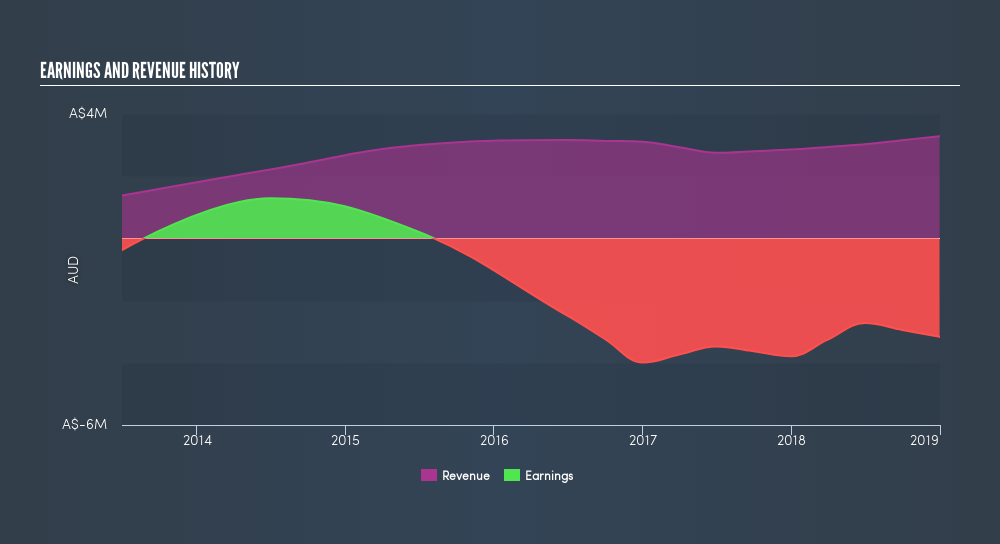
If you're interested in Vault Intelligence Limited (ASX:VLT), then you might want to consider its beta (a measure of share price volatility) in order to understand how the stock could impact your portfolio. Volatility is considered to be a measure of risk in modern finance theory. Investors may think of volatility as falling into two main categories. The first category is company specific volatility. This can be dealt with by limiting your exposure to any particular stock. The second type is the broader market volatility, which you cannot diversify away, since it arises from macroeconomic factors which directly affects all the stocks on the market.
Some stocks mimic the volatility of the market quite closely, while others demonstrate muted, exagerrated or uncorrelated price movements. Some investors use beta as a measure of how much a certain stock is impacted by market risk (volatility). While we should keep in mind that Warren Buffett has cautioned that 'Volatility is far from synonymous with risk', beta is still a useful factor to consider. To make good use of it you must first know that the beta of the overall market is one. Any stock with a beta of greater than one is considered more volatile than the market, while those with a beta below one are either less volatile or poorly correlated with the market.
View our latest analysis for Vault Intelligence
What we can learn from VLT's beta value
Zooming in on Vault Intelligence, we see it has a five year beta of 1.1. This is above 1, so historically its share price has been influenced by the broader volatility of the stock market. If this beta value holds true in the future, Vault Intelligence shares are likely to rise more than the market when the market is going up, but fall faster when the market is going down. Beta is worth considering, but it's also important to consider whether Vault Intelligence is growing earnings and revenue. You can take a look for yourself, below.

Could VLT's size cause it to be more volatile?
Vault Intelligence is a rather small company. It has a market capitalisation of AU$19m, which means it is probably under the radar of most investors. Relatively few investors can influence the price of a smaller company, compared to a large company. This could explain the high beta value, in this case.
What this means for you:
Since Vault Intelligence has a reasonably high beta, it's worth considering why it is so heavily influenced by broader market sentiment. For example, it might be a high growth stock or have a lot of operating leverage in its business model. This article aims to educate investors about beta values, but it's well worth looking at important company-specific fundamentals such as Vault Intelligence’s financial health and performance track record. I highly recommend you dive deeper by considering the following:
- Future Outlook: What are well-informed industry analysts predicting for VLT’s future growth? Take a look at our free research report of analyst consensus for VLT’s outlook.
- Past Track Record: Has VLT been consistently performing well irrespective of the ups and downs in the market? Go into more detail in the past performance analysis and take a look at the free visual representations of VLT's historicals for more clarity.
- Other Interesting Stocks: It's worth checking to see how VLT measures up against other companies on valuation. You could start with this free list of prospective options.
We aim to bring you long-term focused research analysis driven by fundamental data. Note that our analysis may not factor in the latest price-sensitive company announcements or qualitative material.
If you spot an error that warrants correction, please contact the editor at editorial-team@simplywallst.com. This article by Simply Wall St is general in nature. It does not constitute a recommendation to buy or sell any stock, and does not take account of your objectives, or your financial situation. Simply Wall St has no position in the stocks mentioned. Thank you for reading.
Market Insights
Community Narratives




